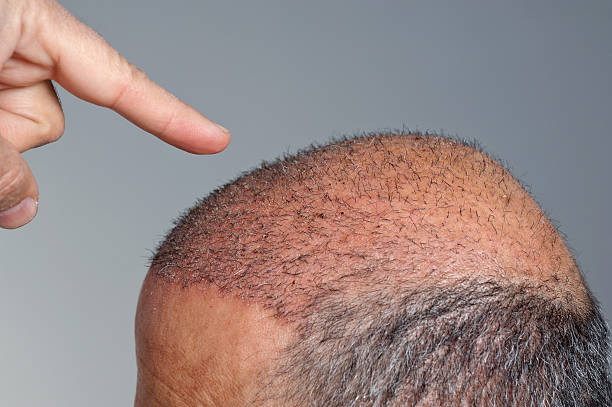Managing Scalp Psoriasis: Causes and Soothing Solutions
Struggling with constant itching, flaking, or thick patches on your scalp? It might be more than just dandruff. Scalp psoriasis is a common autoimmune condition that can cause discomfort, embarrassment, and even hair loss if left untreated. In this guide, we break down everything you need to know—from early symptoms and root causes to the most effective relief options available today. Whether you are newly diagnosed or looking for better ways to manage flare-ups, this is your roadmap to a healthier scalp.

What Does Scalp Psoriasis Look Like?
Scalp psoriasis presents as thick, silvery-white or red patches covered with scales that can appear anywhere on the scalp. These patches often extend beyond the hairline onto the forehead, neck, and around the ears. The affected areas typically have well-defined borders and can range from small, localized spots to large areas covering the entire scalp. The scales may appear dry and flaky, sometimes resembling severe dandruff, but they are typically thicker and more adherent to the scalp than regular dandruff flakes. In some cases, the patches may have a yellowish appearance due to the accumulation of scales and natural oils.
How Does Psoriasis Start on the Scalp?
Scalp psoriasis typically begins as small, red bumps that gradually develop into larger patches covered with thick scales. The condition often starts during childhood or early adulthood, though it can appear at any age. Initial symptoms may be subtle, beginning with mild itching or a feeling of tightness on the scalp. As the condition progresses, the skin cells multiply rapidly, creating the characteristic thick, scaly patches. Triggers for the initial onset can include stress, infections, certain medications, weather changes, or minor injuries to the scalp such as scratching or aggressive brushing.
What Are the Main Symptoms of Scalp Psoriasis?
The primary symptoms of scalp psoriasis include persistent itching, which can range from mild to severe and may worsen at night. Affected individuals often experience a burning or stinging sensation on the scalp, particularly when the condition flares up. Hair loss can occur, though it is usually temporary and grows back once the inflammation subsides. Many people notice increased dandruff-like flaking, but unlike regular dandruff, these scales are thicker and may have a silvery appearance. The scalp may also feel tender to the touch, and scratching can lead to bleeding or temporary hair loss in affected areas.
What Treatment Options Are Available for Scalp Psoriasis?
Treatment options for scalp psoriasis vary depending on the severity of the condition and individual response to therapy. Topical treatments form the foundation of most treatment plans and include medicated shampoos containing coal tar, salicylic acid, or ketoconazole. Corticosteroid solutions, foams, and oils can help reduce inflammation and scaling. For more severe cases, healthcare providers may prescribe topical vitamin D analogues or combination medications. Light therapy using UV-B radiation can be effective for widespread scalp psoriasis. Systemic treatments, including oral medications and injectable biologics, are reserved for severe cases that do not respond to topical treatments. Natural remedies such as aloe vera, tea tree oil, and oatmeal treatments may provide additional relief when used alongside conventional therapies.
Cost Considerations for Scalp Psoriasis Treatment
Treatment costs for scalp psoriasis can vary significantly depending on the severity of the condition and chosen treatment approach. Over-the-counter medicated shampoos typically range from $10 to $30 per bottle and may need to be used long-term. Prescription topical treatments can cost between $50 to $300 per tube or bottle, depending on the medication and insurance coverage. Dermatologist consultations generally range from $200 to $400 for initial visits, with follow-up appointments costing $150 to $250. Light therapy sessions can cost $50 to $100 per treatment, with multiple sessions required for effectiveness.
| Treatment Type | Provider/Product | Cost Estimation |
|---|---|---|
| Medicated Shampoos | Neutrogena T/Gel, Selsun Blue | $10-30 per bottle |
| Prescription Topicals | Clobetasol Solution, Calcipotriene | $50-300 per container |
| Dermatologist Visit | Private Practice, Hospital System | $200-400 initial, $150-250 follow-up |
| Light Therapy | Dermatology Clinics, Medical Centers | $50-100 per session |
| Biologic Treatments | Humira, Cosentyx, Skyrizi | $5,000-8,000 per month without insurance |
Prices, rates, or cost estimates mentioned in this article are based on the latest available information but may change over time. Independent research is advised before making financial decisions.
Managing scalp psoriasis requires a comprehensive approach that combines appropriate medical treatment with lifestyle modifications and consistent care routines. While the condition can be challenging to live with, numerous effective treatment options are available to help control symptoms and improve quality of life. Working closely with a dermatologist or healthcare provider can help individuals develop a personalized treatment plan that addresses their specific needs and responds to the severity of their condition. With proper management, most people with scalp psoriasis can achieve significant symptom relief and maintain healthy scalp condition over time.
This article is for informational purposes only and should not be considered medical advice. Please consult a qualified healthcare professional for personalized guidance and treatment.




